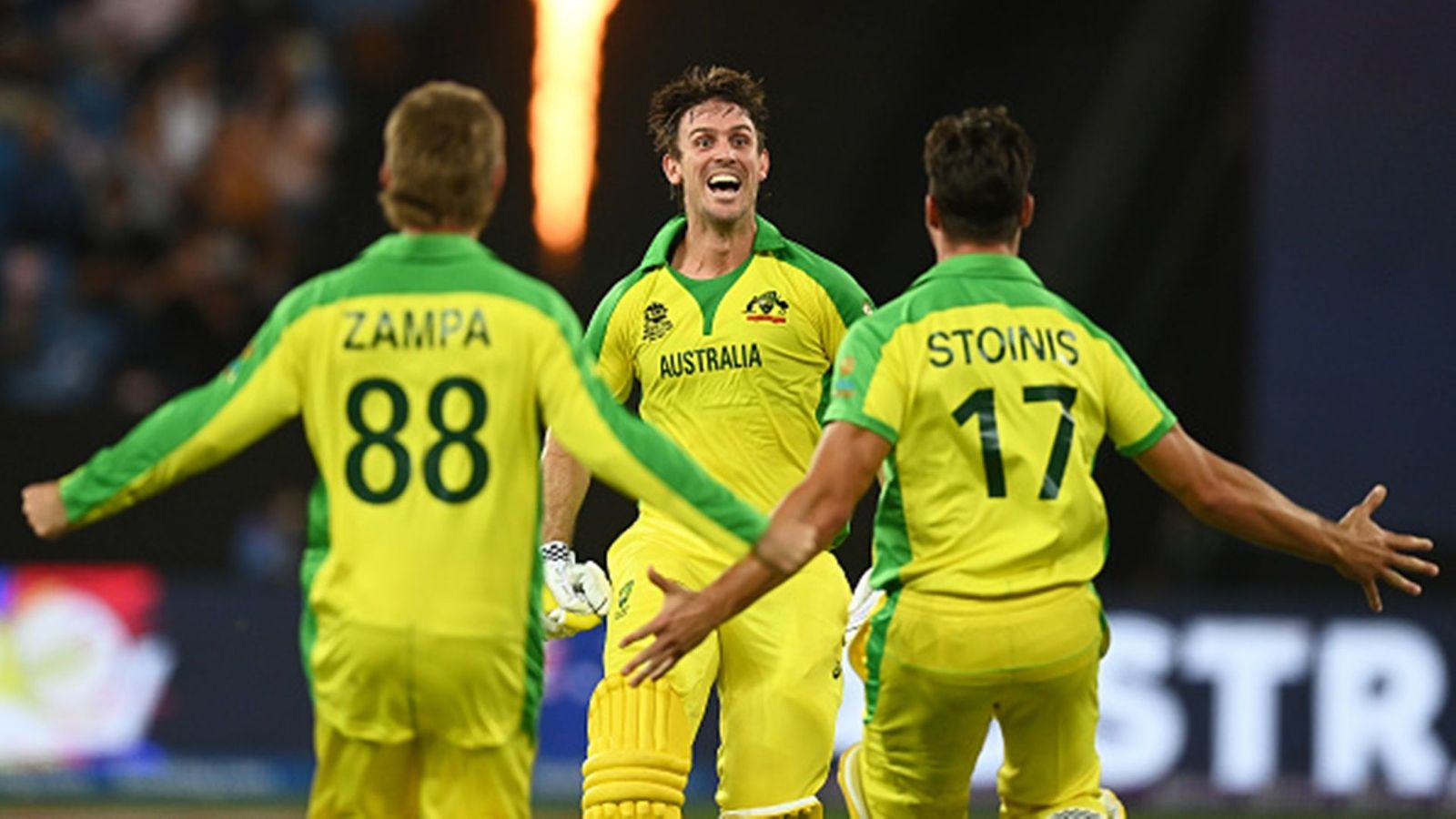New Zealand suffer another heartbreak at the hands of Australia as fifties from Mitchell Marsh and David Warner’s help the team chase down highest total in a T20 World Cup final. In the end, Australia turned it into a one-sided affair by winning the match by eight wickets with seven balls to spare. Kane Williamson’s 85-run knock went in vain as Kiwis failed to defend a total of 172/4.
Marsh, Warner make it look easy
David Warner continued his form in the final and scored 53 runs from 38 deliveries including four fours and three sixes. Warner’s third half-century helped Australia recover from an early blow. The southpaw shared a game-changing 92-run partnership with Marsh before getting out in the 13th over.
Marsh, on the other hand, came with the intent to punish the Kiwi bowlers. He started his innings with a six against Adam Milne and scored 14 runs off the first three deliveries he faced. The in-form all-rounder got to his half-century from 31 deliveries, the fastest in a T20 World Cup final. He was instrumental in the middle overs keeping Australia ahead of the required run rate despite Warner’s wicket.
Marsh remained unbeaten for 77 off 50 deliveries including six fours and four sixes. Glenn Maxwell scored the winning runs for Australia with his trademark switch hit off Tim Southee. Maxwell remained unbeaten for 28 off 18 deliveries including four fours and one six. Marsh and Maxwell shared an unbeaten 66-run partnership off 39 deliveries.
Boult stands out
Trent Boult stood out of the lot while Kiwi bowlers took a beating from Warner and Marsh. Boult gave just 18 runs from his four overs and bowled 13 dot deliveries. With the new ball, he provided the first breakthrough by taking the wicket of opener Aaron Finch. The left-arm pacer returned to bowl in the middle overs and provided another breakthrough with the wicket of Warner. But he did not get much help from other bowlers to put pressure on Aussies in death overs.
Lowest powerplay score for Kiwis
Australia new ball bowlers were able to restrict New Zealand to 32 for the loss of one wicket, their lowest powerplay score in the tournament. The hero of semi-final Daryl Mitchell was dismissed by Josh Hazlewood in the fourth over. Mitchell could score only 11 runs from eight balls he faced including a maximum. Just three fours and one six were hit during the fielding restrictions.
Hazlewood's costly drop
Josh Hazlewood bowled a dreamy record-equalling spell in the final but dropped the most important catch in the context of the match. Williamson was batting on 21 when Hazlewood dropped an easy catch in fine leg region in the 11th over. The drop cost Australia 64 more runs at a strike rate of over 200. The pacer took three wickets for 16 runs including Williamson’s to register the joint-best bowling figures in a T20 World Cup final.
Williamson’s unreal acceleration
New Zealand had 37 runs on the board for the loss of one wicket after eight overs. They faced a boundary drought of 33 deliveries. Even 150 looked like a distant dream for Kiwis but Williamson shifted gears and single-handedly lifted the scoring rate. There was barely any hard-hitting from the other end when Williamson was batting as he saved his best for the last, scoring at a strike rate of 177.08. The skipper registered the joint-highest score in a T20 World Cup final.
Starc’s worst day out
Mitchell Starc had a horrendous outing with the ball as he leaked a record-breaking 60 runs in his four overs. While Hazlewood’s drop robbed Starc of a deserving wicket, the left-arm pacer was taken to the cleaners in the second half of the game. Starc also bowled the most expensive over in a T20 World Cup final including a 22-run over. Interestingly, Starc took 11 wickets in the 2015 50-over World Cup against the Kiwis in just two games.


